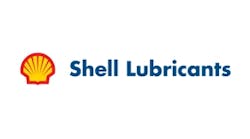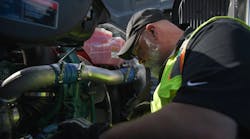There are numerous things that can be done to optimize your maintenance practices to be more efficient and save money. Here are a few easy things that you can avoid to start saving money today.
1. The Wrong Coolant Filter
Extended life coolants (ELCs) are becoming very common. In a recent survey, worldwide research company Power Systems Research (www.powersys.com) found that nearly 80 percent of medium and large fleets are using ELCs.
One advantage of using an ELC is that they don’t require an SCA (Supplemental Coolant Additive)-charged filter.
However, many fleets are still buying charged filters and putting them in trucks that are running ELC. A charged filter typically costs $3 to $10 more than a non-charged filter.
Using the correct filter in conjunction with ELC can save your fleet money.
2. Know Your Transmissions
Improvements in technology have brought a new generation of transmissions: automated manual transmissions (AMTs). AMTs get the fuel efficiency of manual transmissions and optimize engine operating conditions to further improve fuel efficiency while improving driver comfort with the convenience of an automatic transmission.
AMTs require special transmission fluids that have only recently been introduced.
Eaton’s AMT, for example, uses a fluid that meets PS-386 SAE 40 – a new specification introduced last year. You could find other fluids on the market, but if you don’t use a fluid approved by Eaton you could risk damaging your transmission or risk performance issues – both of which can cause your fleet to spend money that could have been avoided.
3. Too Much Grease on the Fifth Wheel
It’s true. You can use too much grease. Greasing the fifth wheel does not generally need to involve spreading an entire tube of grease around its surface.
Instead, a moderate amount can be placed on the back half of the bracket, with a small amount on the front half. The trailer will help spread it to the entire surface of the fifth wheel when it is connected.
Most of the time, over-greasing just leads to spilling grease on the truck and on the road. While grease is relatively inexpensive, these small amounts of grease can add up to a lot of money.
4. Issues Discovered Too Late
When it comes to maintaining your fleet, identifying issues as early as possible paves the way for cost effective remedies before they escalate into bigger, more expensive problems. This is especially true if you identify a problem with your truck after its warranty period when you have to absorb the entire cost of the repair.
There are many tools that can help identify problems early. Oil condition monitoring, for example, is a proven method to identify abnormal patterns in wear metals, contaminants and other important factors.
Of course, you always could tear down your engines and look for signs of premature wear and other problems. However, that would require valuable time from your technicians that you can’t spare.
An alternative would be to use an engine scope that can look inside your trucks’ engines without having to tear them completely apart. Services like Shell LubeVideoCheck can identify issues quickly and efficiently and require only minimal preparatory work from your technicians.
5. A Focus Only on the Direct Cost of Lubricants
Lubricants can be expensive, especially if you opt for synthetic lubricants. Transmission and differential fluids in particular can carry a big price tag.
Moving up from conventional engine oil to synthetic potentially could cause a significant increase in procurement costs. However, the benefits of high-quality synthetic lubricants not only offset added procurement costs, they also can decrease overall maintenance and fuel costs.
Dan Arcy is global OEM technical manager and industry trade association liaison for Shell Global Solutions (www.shell.com/business-customers/global-solutions.html), which provides technical services and licensed technologies. His responsibilities include technical support to OEMs, representing Shell in the heavy duty engine oil technical committees and working with Shell’s on- and off-highway field testing programs. He served as chairman of the New Category Development Team (NCDT) and was responsible for leading the NCDT in defining the PC-11 performance standard for the next generation heavy duty engine oils. As Shell’s representative to the American Petroleum Institute (API) Diesel Engine Oil Advisory Panel (DEOAP), he has held this position as a voting member for more than 20 years and has actively been involved in the development of the last three heavy duty engine oil performance categories.



